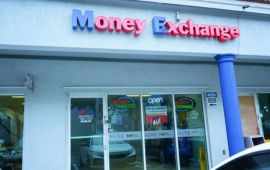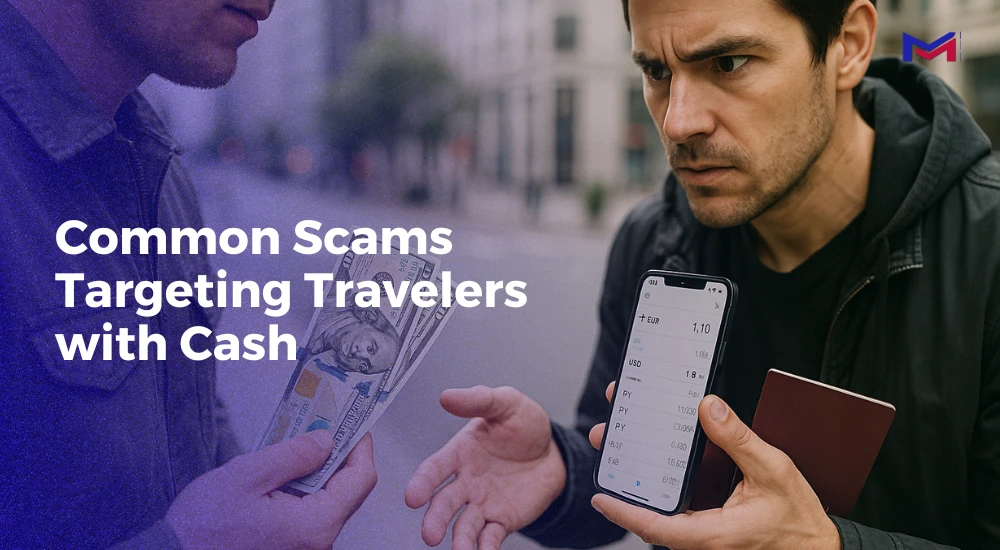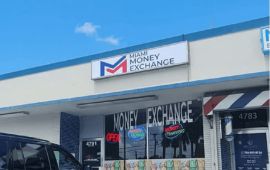Carrying cash while traveling is still common in 2025. Whether it’s paying for taxis, small restaurants, or street markets, cash remains essential. Unfortunately, travelers with visible money are often the prime targets of scams. Criminals know that tourists are less familiar with local practices, making them more vulnerable.
This guide explains the most common scams targeting travelers with cash, the red flags to watch for, and practical steps you can take to protect yourself while abroad.
Why Travelers with Cash Are Easy Targets
Travelers often stand out because they’re unfamiliar with their surroundings and carry larger amounts of money than locals. Scammers exploit this by using distraction tactics, offering fake deals, or inflating prices.
- Tourist psychology: Visitors are more likely to trust strangers when they feel lost or need help.
- Risky locations: Crowded places like airports, train stations, public transportation, and festivals are hotspots for scams.
For more insights, read The Best Way to Travel with Cash: Safety Tips.
Common Scams Targeting Tourists
Fake Currency Exchange Offers
Street exchangers often claim to give better rates than official offices. Tourists may end up with counterfeit bills or lose part of their money during the transaction. Always use official providers—before your trip, exchange your money at trusted offices like Miami Money Exchange to avoid unnecessary risks.
Pickpocketing and Distraction Tricks
Distraction scams are some of the oldest yet most effective methods. Thieves spill a drink, drop coins, or bump into you while an accomplice steals your wallet. Pickpockets thrive in crowded areas, especially where tourists keep their cash in backpacks or open pockets.
Taxi Overcharging and “Lost Change” Tricks
Some taxi drivers inflate fares or claim they don’t have change, forcing you to pay more. Others may demand payment in foreign currency at inflated rates. Keeping small bills is the best way to avoid these traps.
ATM and Hotel Skimming
Scammers may install hidden skimmers on ATMs to capture your card details. In hotels, untrustworthy staff might target guests who carry or store large amounts of cash carelessly in unsecured drawers or bags.
QR Code and Tech-Based Scams
A newer trend involves fake QR codes at restaurants, airports, or parking areas. Scanning them may redirect you to fraudulent payment sites or install malware on your phone. Always verify QR codes before scanning.
Red Flags to Watch Out For
- Exchange rates that sound “too good to be true.”
- Strangers insisting on helping with ATMs.
- Vendors refusing to provide receipts for large purchases.
- Taxi drivers pressuring you to pay more due to “no change.”
- QR codes taped over legitimate ones in restaurants or airports.
How to Avoid Cash Scams Abroad
Use Trusted Currency Exchange Services
Avoid street exchangers and unreliable kiosks. Get your currency before you travel at a secure, commission-free provider like Miami Money Exchange. This ensures you get competitive rates without risking counterfeit bills.
To plan your exchange, see When Is the Best Time to Exchange Currency?.
Split and Conceal Your Cash
Divide your money into different locations: wallet, hidden belt, hotel safe, and even small amounts in your luggage. This way, even if one portion is lost, you won’t lose everything.
Stay Alert in High-Risk Areas
Keep your valuables close when using public transportation or walking through crowded tourist zones. Carry small bills for everyday expenses, and avoid showing large notes in public.
For practical strategies, check How to Manage Money When Traveling.
Cash vs. Cards: Which Is Safer?
While cash is useful, it’s not always the safest option for every transaction.
- Cash pros: Universal, good for small purchases, avoids some foreign card fees.
- Cash cons: High risk if lost or stolen.
- Card pros: Safer for hotels, car rentals, and online bookings; fraud protection.
- Card cons: Fees, exchange rate markups, and sometimes not accepted in rural areas.
For a detailed comparison, see Currency Exchange vs. ATMs Abroad.
FAQs – Traveler Questions Answered
What are common scams targeting travelers with cash?
Pickpocketing, fake exchange offers, overcharging taxis, ATM skimming, and distraction scams are the most frequent.
How can I avoid fake currency exchange scams?
Only use official, licensed currency exchange offices. Avoid street exchangers who offer unrealistically high rates.
What are distraction scams like the “spill” or “coin scam”?
These involve creating chaos—spilling a drink or dropping coins—while an accomplice steals from you.
How do taxi overcharging and lost-change tricks work?
Drivers may inflate fares or claim they lack change. Always negotiate or check fares before starting the ride, and carry small bills.
Are ATM skimming and QR code scams common?
Yes, especially in high-tourist areas. Always inspect ATMs, use ones inside banks, and verify QR codes before scanning.
What should I do if I’m scammed abroad?
Report the incident to local police and your embassy. Keep a small emergency fund separate to ensure you’re not stranded.
Final Thoughts
Cash is still essential for travelers, but it also makes you a potential target. By learning the most common scams, recognizing red flags, and practicing smart money habits, you can protect yourself abroad.
To travel with peace of mind, plan ahead: exchange your currency at Miami Money Exchange, where you’ll get secure, commission-free services helping you avoid scams and focus on enjoying your trip.

Miami Money Exchange Downtown
Monday – Friday: 8:30 AM – 6:00 PM
Saturday: 8:30 AM – 5:00 PM
Sunday: 9:00 AM – 4:00 PM

Miami Money Exchange 256 Downtown
Monday – Friday: 8:00 AM – 6:30 PM
Saturday: 8:00 AM – 5:00 PM
Sunday: 9:00 AM – 4:00 PM

Miami Money Exchange Doral
Monday – Friday: 8:00 AM – 7:00 PM
Saturday: 8:00 AM – 5:00 PM
Sunday: 9:00 AM – 4:00 PM

